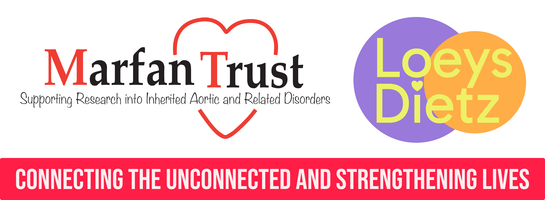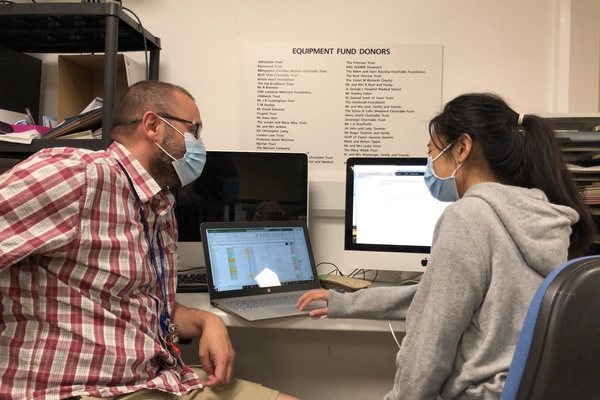In this report for our Autumn 2021 Newsletter I will talk of my Summer Research at the Marfan Trust. I have several projects in motion, remote and within the Sonalee Lab. As I write this, I am currently working with Dr Sanjay Sinha at the Cambridge Stem Cell Institute, discovering new drugs that will help us to manage better Marfan syndrome. I am also working on genotype-phenotype association in MFS to find out if a particular mutation in the FBN1 gene produces a particular clinical feature and, in this way, try to predict the clinical features in a newly diagnosed Marfan patient. This way we can assess better the number of visits per year the patient will make to the clinic for follow-ups. We are also working on the fine mapping of the FBN1 gene to describe better those variants that are causative and those that are just so-called normal.
We are looking to discover new causative genes in thoracic aortic aneurysm and dissection TAAD, in ectopia lentis (dislocation of the crystalline lens in the eye) and Ehlers-Danlos. When a patient with clinical features comes to our clinic it is our duty to find out the genetic cause in the patient. If the condition is fatal like Marfan syndrome we must rule out FBN1 involvement. If we screen the patient for next generation sequencing (NGS) it gives us the power to find the cause of the condition.
Our Imperial College MSc students Lauren and Qasim worked over the summer on NGS and thoracic aortic aneurysm and dissection TAAD. Both students of genomics, Qasim and Lauren were drawn to the TAAD project through their interest in clinical genetics with TAAD an overlapping feature. Qasim looked at a cohort of 20 patients, all unresolved cases, with the aim of identifying the potentially causing gene. Lauren meanwhile examined cohort 2 at 19 cases, also with the aim of identifying the causing gene.
Qasim and Lauren were able to find variants of great significance in their TAAD cohorts but we have not yet had time to go over their data to analyse these variants and confirm their responsibility to the disorder. We are still waiting for further data analysis and confirmation. We have to check that the variants are significant and important before using DNA from family members to confirm segregation of the variant in the family. Our samples are currently being audited by the Royal Brompton and once confirmed we can research the samples.





